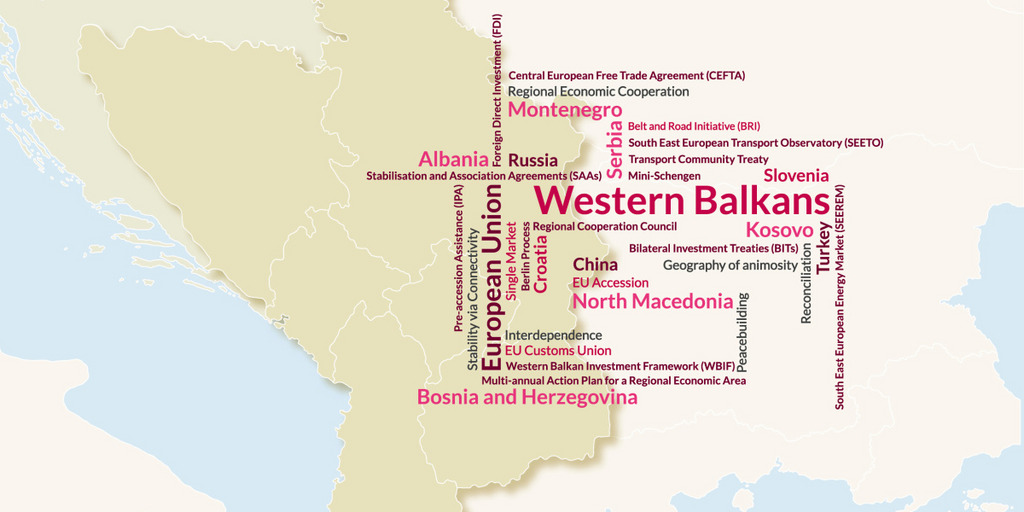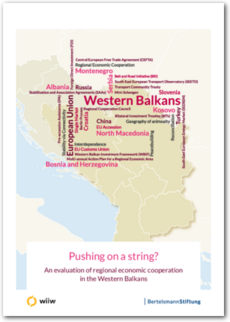For two decades now, the EU has been trying to promote economic cooperation between the Balkan countries, in addition to association and the opening of the EU accession perspective as early as 2003. On the basis of its own positive experience after the Second World War, the EU considers the intensification of economic cooperation to be one, if not the most appropriate means of initiating rapprochement between enemy countries and ensuring long-term reconciliation between peoples. The idea is as simple as it is compelling: when countries realise that they benefit from each other through trade and other forms of economic cooperation, there is also a growing willingness to curb nationalism, reduce tension and leave resentment behind. However, the Balkans have so far largely escaped this EU strategy. And the functionalist approach seems to have largely come to nothing, to the frustration of the EU and the inhabitants of the Western Balkans. The study examines the reasons for this. It shows that - regardless of the political situation - the basic prerequisites for a functioning regional economic cooperation in the Western Balkans are still not in place. This calls the EU strategy into question. In any case, the EU's incentives to encourage the Western Balkan states to engage in regional cooperation would have had to be much higher under these conditions in order to bear fruit. What is decisive, however, is that the Western Balkan countries would benefit much more in their economic development from an anticipated integration into the EU internal market than from all efforts to advance their economic development through intra-regional trade. Accordingly, deeper economic integration with the EU , thus laying the foundations for the desired peaceful reconciliation of interests.
The Western Balkan countries account for less than 1 percent of the EU's GDP. Better access for these countries to the EU budget would be an option to promote economic development without placing a decisive burden on the EU budget. Finally, the cost to the EU of the region's relapse into open conflict would be much higher. A further step would be to include the countries in the EU customs union and to extend the existing association agreements. Even though full EU accession is still many years away, all steps to integrate the Western Balkans more closely are geared to their economic development. The demographic trend and the Covid 19 pandemic give such considerations of economic integration with the EU an additional element of urgency. Otherwise, the Balkans could once again become the proverbial powder keg that it has tragically been for Europe throughout long years of history.



![[Translate to English:] Bildmontage - Weizenfeld, auf das die tunesische Flagge projiziert wurde](/fileadmin/files/_processed_/9/4/csm_286567047AdobeStock_361654509_KONZERN_ST-EZ_bearb_71cbd89aa7.jpg)




